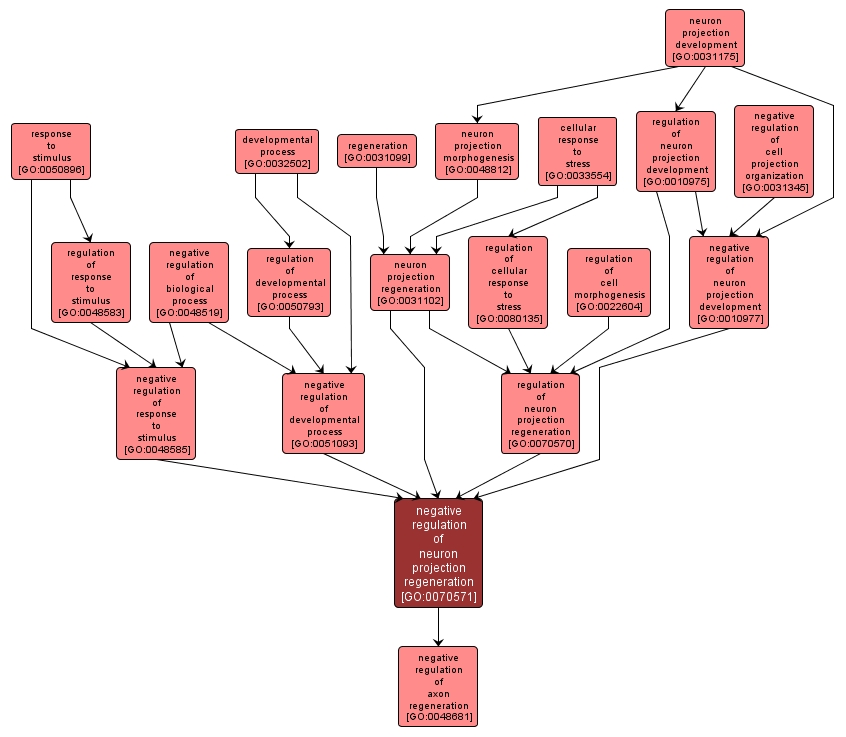GO TERM SUMMARY
|
| Name: |
negative regulation of neuron projection regeneration |
| Acc: |
GO:0070571 |
| Aspect: |
Biological Process |
| Desc: |
Any process that stops, prevents or reduces the frequency, rate or extent of neuron projection regeneration, the regrowth of neuronal processes such as axons or dendrites following their loss or damage. |
|

|
INTERACTIVE GO GRAPH
|














